Share this @internewscast.com
Nail biting might seem like a harmless habit—a quick fix for stress or boredom—but its consequences can sneak up on you in surprising ways. Beyond chipped nails, this common behavior, known as onychophagia, affects millions worldwide and can wreak havoc on your health. From dental damage to unexpected illnesses, the effects of nail biting go far deeper than the surface. In this comprehensive guide, we’ll explore six unobvious risks, backed by science, and share practical stress relief strategies to kick the habit. Let’s uncover why nail biting isn’t just a cosmetic issue—it’s a health wake-up call.
6 Unobvious Things That Can Happen if You Bite Your Nails: The Hidden Risks Exposed
How Nail Biting Wears Down Your Teeth
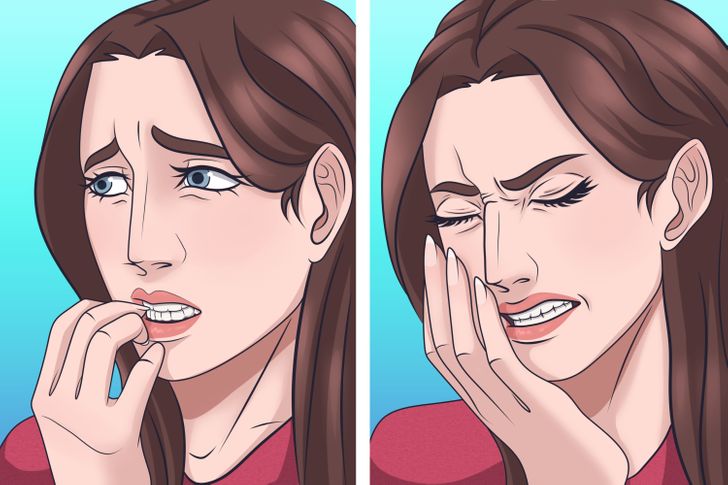
Chipping and Cracking Risks
Your nails might be small, but they’re tough—and biting them puts serious pressure on your teeth. According to Colgate, habitual nail biting can chip enamel, the protective outer layer of your teeth, leading to costly dental care down the line. Over time, this wear weakens your smile, making it prone to cracks or fractures.
Misalignment and Jaw Strain
It’s not just the teeth that suffer—your jaw takes a hit too. The American Dental Association notes that repetitive biting can misalign teeth or strain the temporomandibular joint (TMJ), causing discomfort or even chronic pain. For those invested in oral health, this is a compelling reason to rethink the habit.
Long-Term Dental Costs
Damaged teeth don’t fix themselves. A chipped tooth might require bonding or crowns, while misalignment could mean braces—expenses that add up fast. Protecting your dental care budget starts with ditching nail biting and opting for healthier stress relief, like chewing gum or using fidget toys.
hy Nail Biting Could Leave You With Bad Breath
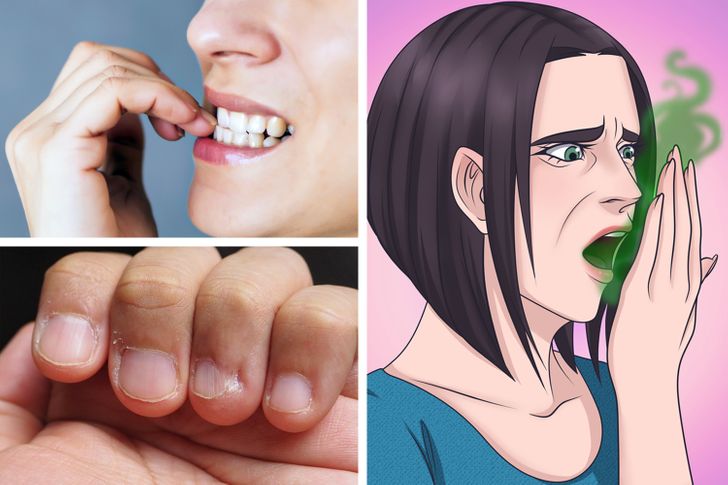
Bacteria Under Your Nails
Your fingertips are a hotspot for germs, and biting your nails transfers them straight to your mouth. Healthline explains that bacteria like Streptococcus or Candida thrive under nails, especially if they’re dirty. Once in your mouth, these microbes can linger, contributing to halitosis—aka bad breath.
Saliva and Gum Impact
Nail biting also disrupts saliva flow, a natural cleanser for your mouth. According to WebMD, this can exacerbate gum irritation or infections, amplifying odor. For oral health enthusiasts, this hidden side effect is a stinky surprise worth avoiding.
Fresh Breath Fix
Brushing and flossing help, but the real solution is keeping your hands out of your mouth. Pair this with regular dental care checkups to ensure your breath stays fresh—and your confidence intact.
How Nail Biting Might Trigger Diarrhea
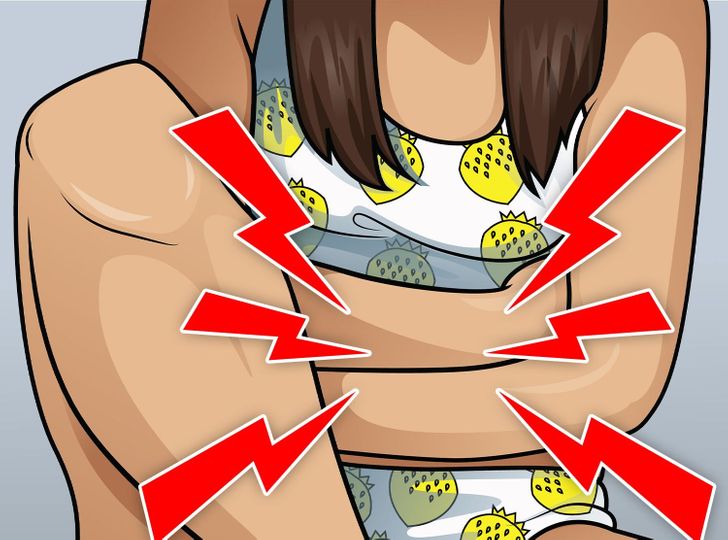
Germs on the Move
Those germs under your nails don’t stop at your mouth—they can travel to your gut. A study from PMC found that nail biting increases the risk of ingesting pathogens like E. coli or Salmonella, common culprits behind diarrhea. For kids and adults alike, this habit turns a nervous tic into a digestive disaster.
Parasite Potential
It gets worse: nail biting is linked to parasitic infections. Cleveland Clinic warns that pinworms, often picked up from contaminated surfaces, can hitch a ride via bitten nails, leading to stomach upset or worse. This gut health risk is a grim reminder to wash hands—and stop biting.
Protecting Your Stomach
Good hygiene helps, but breaking the habit is key. Health supplements like probiotics can support gut recovery, but prevention beats cure when it comes to nail biting’s messy consequences.
Why Nail Biting Makes You More Susceptible to Colds
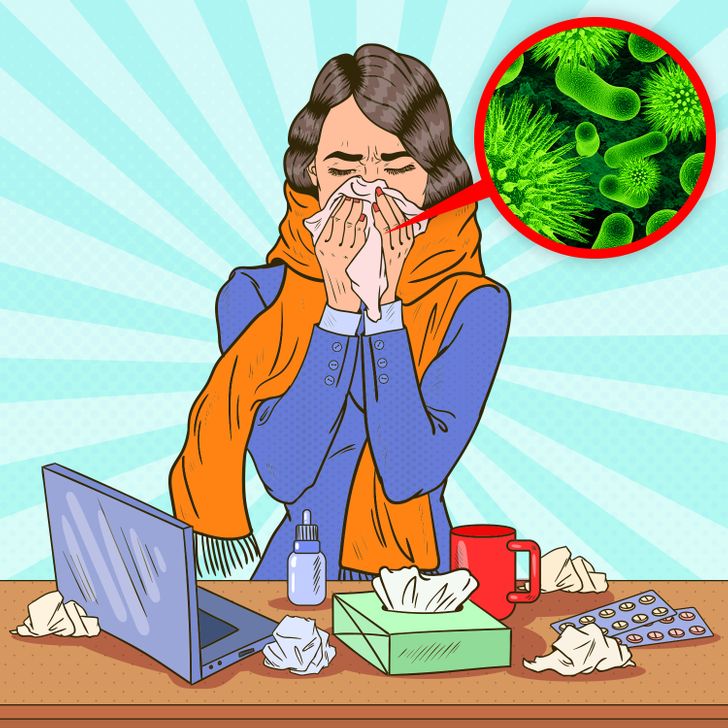
A Gateway for Viruses
Your hands touch everything—doorknobs, phones, keyboards—and pick up viruses like the common cold or flu. Biting your nails delivers those germs directly to your mucous membranes, a fast track to infection. Medical News Today highlights that this habit weakens your immune defenses, especially during cold season.
Weakened Skin Barriers
Torn cuticles from biting also create entry points for pathogens. According to Mayo Clinic, these micro-injuries invite bacteria or viruses, increasing your odds of sniffles or worse. For immune health, this is a risk worth dodging.
Boosting Immunity
Hand sanitizer and regular washing are smart, but quitting nail biting is the ultimate shield. Pair this with health supplements like vitamin C to keep colds at bay and your body resilient.
How Nail Biting Could Cause Your Face to Break Out
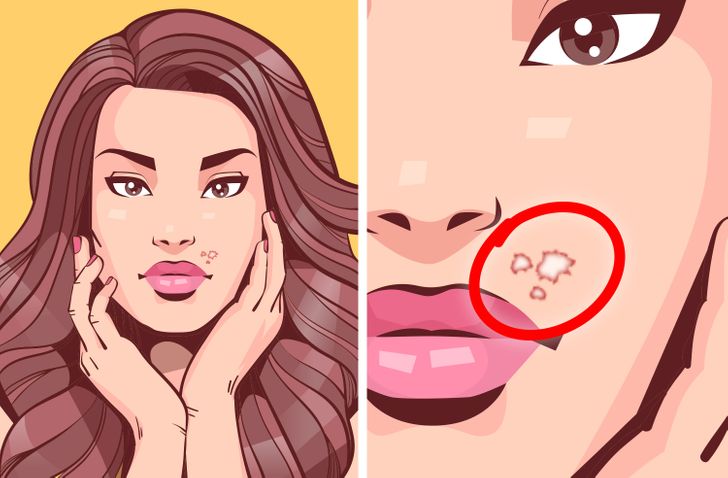
Spreading Oil and Bacteria
Ever notice pimples after a nail-biting session? Your fingers carry oil, dirt, and bacteria, and touching your face post-bite spreads them to your skin. Verywell Health explains that this can clog pores, sparking acne flare-ups—especially around your mouth or chin.
Inflammation From Cuticles
Bitten nails often leave ragged cuticles, which can get infected. Healthline notes that this inflammation can trigger nearby skin reactions, worsening breakouts. For skin care product fans, this is a sneaky saboteur of clear complexions.
Clear Skin Solutions
Keep nails trimmed and hands clean to minimize acne risks. If breakouts persist, quality skin care products—like salicylic acid cleansers—can help, but stopping the bite is the real game-changer.
Could Nail Biting Be Behind Your Chronic Headaches?
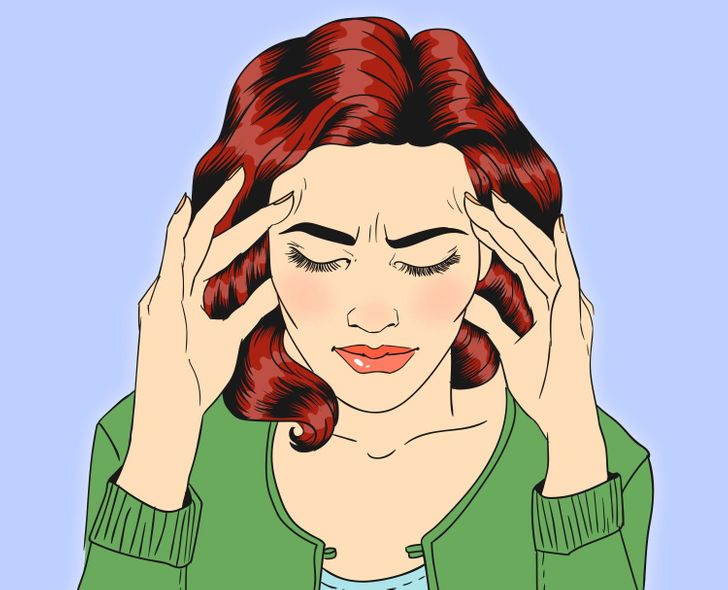
Jaw Tension and Stress
Nail biting doesn’t just harm your teeth—it stresses your jaw. The repetitive motion can strain the TMJ, leading to tension headaches, as noted by Headache Journal. This subtle link might explain why your head pounds after a stressful day of nibbling.
Anxiety Feedback Loop
Nail biting often stems from anxiety, which itself triggers headaches. Psychology Today suggests that this habit reinforces stress, creating a cycle of discomfort that haunts your head. For stress relief, this is a habit worth breaking.
Headache Relief
Mindful relaxation—like meditation or yoga—beats biting as a stress buster. If headaches linger, consult a doctor, but ditching this habit could lighten the load on your jaw and mind.
The Bigger Impact: Why Nail Biting Haunts Your Health
A Domino Effect
These six risks—dental damage, bad breath, diarrhea, colds, acne, and headaches—don’t exist in isolation. They compound, turning a small habit into a health hazard. Harvard Health warns that chronic nail biting can even lead to infections like paronychia, amplifying the stakes.
Mental Health Toll
Beyond the physical, nail biting reflects deeper stress or anxiety. Anxiety and Depression Association of America notes that it’s a coping mechanism that backfires, eroding self-esteem as nails—and health—deteriorate. Breaking free boosts both body and mind.
Economic Costs
From dental care bills to skin care products, the financial hit adds up. Investing in stress relief tools—like fidget spinners or therapy—pays off more than patching up nail biting’s fallout.
How to Stop Nail Biting for Good
Identify Triggers
Start by noticing when you bite—stress, boredom, or nerves? NHS suggests tracking triggers to tackle the root cause, whether it’s work pressure or idle hands.
Replace the Habit
Swap biting for healthier outlets. WebMD recommends bitter nail polish, stress balls, or even knitting—anything to keep fingers busy and stress at bay.
Seek Support
If it’s tough to quit, talk to a dentist or therapist. Cognitive-behavioral therapy (CBT) is a proven stress relief method, per Mayo Clinic, helping you rewire the urge to bite.
Conclusion: Don’t Let Nail Biting Haunt You
Nail biting might feel like a minor quirk, but its effects—from damaged teeth to chronic headaches—can haunt your health in ways you never imagined. Protect your oral health, skin, and well-being by kicking it to the curb with smart stress relief strategies. Ready to stop? Dive into the resources below and share your journey!















